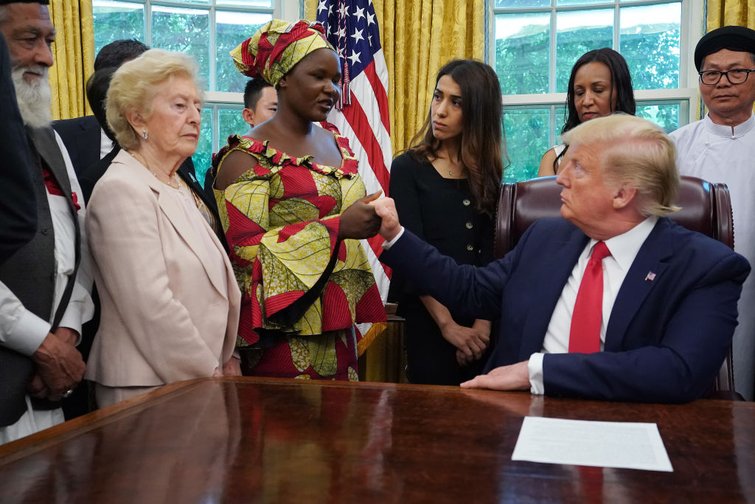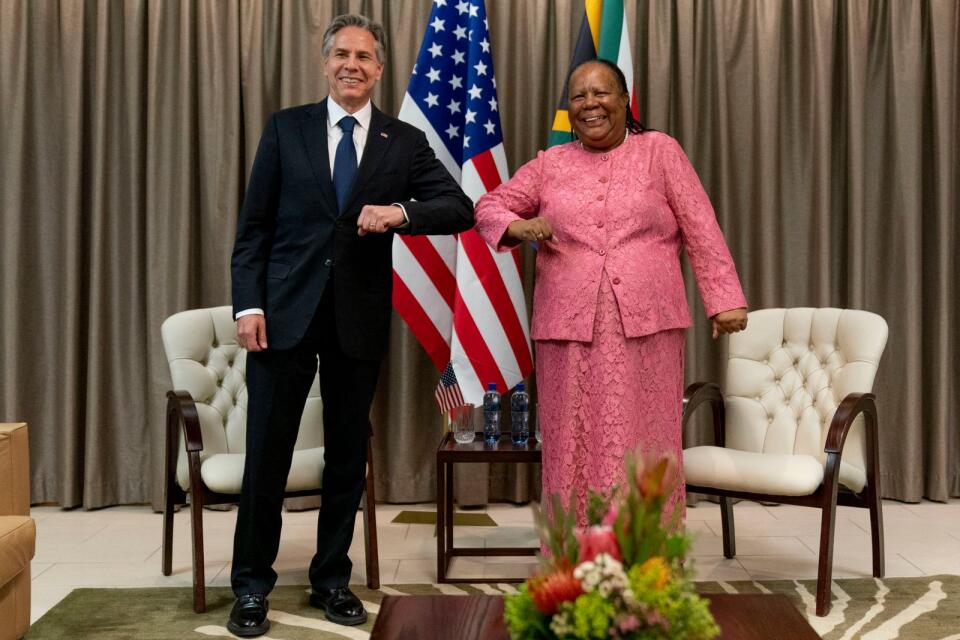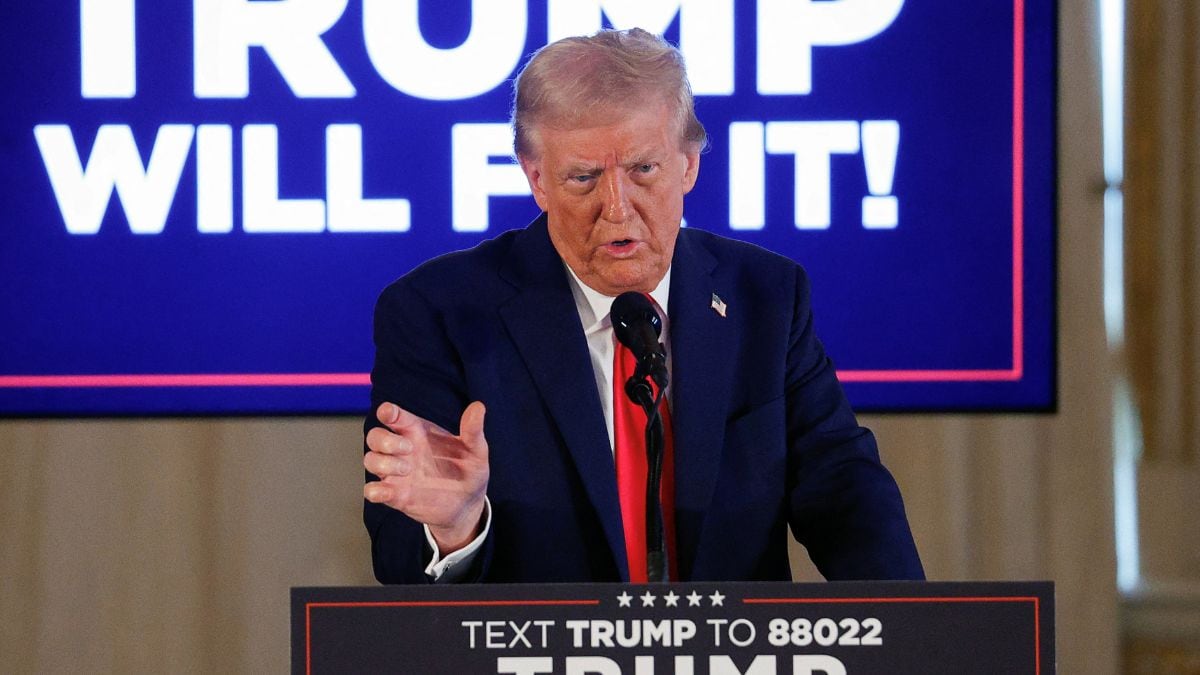It is hard to attempt to anticipate the choices that US President-elect Donald Trump will make when he gets back to the White House. In any case, one thing appears to be probably not going to change: his abhorrence of patient, principled strategy as a way to harmony and his inclination for conditional legislative issues and libertarian signals. This acquires openings and risks a few regions in Africa.
Quite a while back, the Obama organization was working with the African Association (AU) to change Joined Countries (UN) rules for subsidizing peacekeepers to put African missions on a firm monetary premise.
The AU Commission worked with the UN and other multilateral associations to develop an "African harmony and security design" that went from proactive strategy to deflect approaching contentions through to composed intercession endeavors and peacekeeping tasks, all supported by standards and standards revered in the UN Sanction and the AU Constitutive Demonstration. How quite a while in the past that appears.

Plans for more strong peacekeeping dissipated in the progress to the primary Trump organization. From that point forward, no new UN or AU peacekeeping missions have been approved. A few - remembering for Darfur, Sudan and Mali - have been shut, and others downsized. The Biden organization didn't alter the course.
Read Also: Jools Lebron in Tears as Jefferson Bates Files Trademark for 'Very Demure, Very Mindful
The possibility of "liberal harmony" - that harmony, a vote based system, equity and open business sectors generally go together - had for some time been a strong strand in US worldwide technique. The AU embraced its multilateralism however drawn back from being addressed on basic liberties and a majority rules government and were separated on Western military mediations like in Libya.
A few African pioneers favored Trump's realism and spotlight on results. The "Trump Teaching" for the Center East and Africa cleared aside multilateralism for conditional arrangements with American partners in Egypt, Morocco, Saudi Arabia, the Unified Bedouin Emirates (UAE) and, most importantly, Israel.
Head of the state Benjamin Netanyahu and UAE President Mohamed container Zayed set the methodology of the Abraham Accords, and Trump lolled in the greatness when Middle Easterner nations joined. Trump's other predictable positions were antagonism towards China's impact on the landmass and abhorrence for conveying American fighters.

In line with Egypt's Leader Abdul Fattah al-Sisi - portrayed by Trump as "my #1 despot" - then-Depository Secretary Steven Mnuchin assumed responsibility for intervening Egypt's question with Ethiopia over the Nile waters. The quick issue was how much water would be held by the Terrific Ethiopian Renaissance Dam as it moved toward consummation.
As the discussions floundered, Washington put its one-sided influence into the balances, suspending help to Ethiopia, while Trump proposed that Egypt may "explode" the dam. America perceived Morocco's case over Western Sahara in return for Rabat marking the Abraham Accords and consequently perceiving Israel.
Read Also: Uganda Protest Organisers Playing with Fire, President Says
In the time of "liberal harmony", a consent to end a nationwide conflict was the drafting of a popularity based constitution, alongside measures for incapacitating and retiring opponent militaries, momentary equity and compromise, and help financed projects to convey a harmony profit for the distressed people.
The primary Trump organization favored direct arrangement making, by which dictators cut a confidential deal over the counter. Researchers consider this the "biased harmony.
At the point when then-Secretary of State Mike Pompeo visited Sudan after the famous unrest that prompted the expelling of military-Islamist ruler Omar al-Bashir, his fundamental plan was a straightforward exchange.
America would lift sanctions when Sudan consented to sign the Abraham Accords. In October 2020, the White House reported that President Trump had "expedited a memorable nonaggression treaty" among Israel and Sudan.
Closely following arrangements with Bahrain and the UAE, and weeks before Americans casted a ballot in the official political decision, this was Trump's "October shock". It came past the point where it is possible to save Sudan from the monetary emergency that squashed its vote based investigation and fell away after Trump lost to Joe Biden.
However, it's reasonable to expect that the second Trump organization will proceed with along these lines. The specific arrangements and arrangements are difficult to anticipate, and much will rely upon the people designated to key positions. Be that as it may, the "liberal harmony" is presently long gone. Sudan is as of now Africa's biggest conflict and its greatest starvation for a really long time. The fact that Trump is concerned makes there no sign.

The greatest obstruction to harmony is that the UAE upholds one side with weapons and money while Egypt and Saudi Arabia back the other. There is no possibility for harmony while this proceeds. For those Bedouin powerbrokers, Sudan is only one component in their geostrategic computations, positioned beneath Israel-Palestine, Iran and relations with Washington.
Yet, on the off chance that there is a reshuffle of the Center Eastern political cards, a deal over Sudan may be a side-effect, even a chance for Trump to relax in the shine of a startling peacemaker.
It won't stop savagery, not to mention introduce a majority rules system, yet it would open the space for serious discussions. A comparative computation holds for Ethiopia and irritable relations with an Egypt-drove alliance incorporates Eritrea and Somalia.
Alongside a variety of African pioneers, Ethiopia's Top state leader Abiy Ahmed is intensely dependent on Emirati largesse. Pressures in the Horn of Africa would be decreased assuming Egypt and the UAE adjust their techniques. The Biden organization's approach towards the Horn of Africa was neither dedicated to principled multilateralism, nor prepared to utilize its influence with the Bay states.
Its agents could get a handle on for minor wins, for example, stops in the battling or opening designated spots for help escorts. The tangled conflicts in Sudan, Ethiopia and their neighbors shout out for striking activity - and assuming that he were so disapproved, Trump could take a shortcut. Be that as it may, the dangers of a blaze are high.
The Trump White House won't probably limit pugnacious inclinations by Center Eastern powerbrokers or African pioneers, and - particularly during the US strategy vacuum of the following couple of months - any of those pioneers could send off a conflict, sure that America won't answer. In his initial term, Trump showed no interest in the US military impression in Africa.
Obviously spontaneously, he requested the withdrawal of American soldiers from Somalia, where they were engaged with the conflict against the jihadist bunch al-Shabab - a choice switched by the Biden organization. It's improbable that Trump will focus on the Pentagon's tasks against jihadists there or in the West African Sahel, except if there is a high-profile episode with American losses.
What's more, America's Center Eastern partners will be sharp for the US to hold its army installation in Djibouti. Reports of plot between Yemen's Houthis and al-Shabab, uplifting dangers of assaults in East Africa or on delivery in the Indian Sea, may revive US interest in military activities. On the other hand, missions could be moved to partners like the UAE or confidential military workers for hire.














